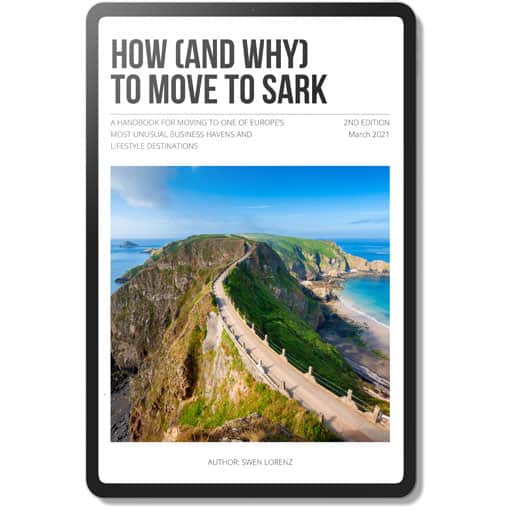Companies often pay outrageous amounts for consultants to find and analyse their structural and operational weaknesses. There is a cheaper and more effective way to achieve the same: Ask (or at least encourage) your employees to review your organisation on Glassdoor!
In case you haven’t come across it yet, Glassdoor is a platform where staff can leave anonymous reviews of their employers. There are other such employee review platforms, but Glassdoor is the largest one by far which is why I am using them as the real-life example in this article.
I once read a friend’s review after she posted it on Glassdoor, and concluded that the company’s top management should be grateful for getting such insider intel for free. They should have sent her a cheque!
Here are some thoughts about why I suggest CEOs (and also board members in some circumstances) should use this tool more actively – and how.
How Glassdoor works
Since it was set up in 2008, the Glassdoor website has continuously evolved.
At the heart of it lies the option for current and former employees to not just leave general reviews about the good sides and the bad sides of their company, but also to rate a few ancillary factors, such as the company’s work-life balance, the CEO’s pay, and the overall office culture. The reviews are left anonymously.
The site has a system for evaluating whether a review is likely to be authentic or not, and it once claimed that it rejects about 20% of all reviews.
I once read a friend’s review after she posted it on Glassdoor, and concluded that the company’s top management should be grateful for getting such insider intel for free.They should have sent her a cheque!
Glassdoor, for all its imperfections, is a system that takes the entire matter of employee feedback to neutral ground. There is a framework that is designed to protect the interests of both the employee and the employer. Everything is done in a civilised fashion. There are also different rules for reviews of smaller companies, aimed at protecting the anonymity of reviewers.
Companies, in turn, can also work with Glassdoor, e.g., through posting more extensive profiles of themselves and linking through to their own recruitment programmes. Glassdoor is primarily a recruitment agency, and the review system is an ancillary operation, but the reviews are what made the company famous the world over.
At last count, Glassdoor reportedly had 64m unique monthly users in around 200 countries worldwide, though the vast majority of them will be in the US. There are currently 900,000 companies and organisations listed on the platform. Glassdoor also occasionally pops up in the media, e.g., when announcing the year’s top employer based on their feedback system.
Why anonymised reviews are so valuable
Naturally, a system that allows current and former staff to freely speak their mind in an environment that is both curated (to protect companies) and anonymous (to protect the authors) is bound to provide some pretty useful insights.
I have been in CEO positions myself, and it’s entirely clear to me that it’s not an easy feat to get honest, direct feedback from employees about problems and weaknesses of the organisation you run. While working there, employees can be naturally hesitant to point out issues for any number of reasons, which can be as simple as never being given a chance to speak to their boss or line manager about such matters in a safe, positive framework. An exit interview can easily be seen as “revenge of a disgruntled employee” if it isn’t done within a clearly defined and carefully curated system. Most of the time, no one will ever even ask for any feedback. Out of sight, out of mind. Which is tragic, given that people who have worked somewhere for a few years are treasure troves of useful information.
Give it a try yourself using employers you know!
Like any review system – make that Amazon, TripAdvisor, or Trustpilot – Glassdoor will never be perfect, and reviews should never be taken as the only source of information for making a decision.
I have been in CEO positions myself, and it’s entirely clear to me that it’s not an easy feat to get honest, direct feedback from employees about problems and weaknesses of the organisation you run.
If you are taking a look at their platform to get a feel for what’s on there, keep in mind that reading reviews always requires some skills and practice. For example:
- Some companies, realising how much their Glassdoor score can affect the number and quality of interviewees coming in, will offer an internal incentive or request to employees who are likely to write good reviews write them. You can also see management writing positive reviews. This is to offset the negative reviews and up the score overall. It’s easy to spot when a company had a string of consistently negative reviews, followed by a tightly spaced string of positive reviews that are shorter and less detailed.
- Other companies will go even further and will create a new logo or even an entire new account to clear the previous bad reviews. You can find the old accounts if you make the effort to carefully check the history.
- How companies respond to reviews is also telling. Some companies have made it a practice to respond to every single review. Glassdoor labels these companies ‘engaged.’ The company responses can be a big insight into their culture.
My own test-drive of their review system led me to conclude that for those companies and organisations that I happen to know something about, it was pretty darn accurate most of the time!
That was even true in cases where there were few or no reviews. E.g., I looked at the listing of one particular organisation that I know would be badly in need of more employee reviews to help kick-start some discussion at board level. Finding just a single review about this organisation was, in my interpretation, a sign that it would rather not know about problems and pretend like they don’t exist.
If you want to get a (stronger) presence on Glassdoor for your own company, you’ll have to decide which approach you will want to pursue. E.g., do you want to make it a policy to reply to all reviews, or to none, or just to the bad ones? These are questions you will need to think through in advance, which is why reading up about a few other companies is such a useful exercise.
Given how many reviews many people read before buying a book, a washing machine, or a weekend trip, I am amazed that we don’t already have all the world’s employees registered on Glassdoor or a similar site. After all, choosing an employer is a decision about where you will spend about one-third of your time every weekday. Besides choosing a partner, does anything have a more far-reaching immediate effect on you?
So far, only the younger generation seems to have really taken to job review websites: Allegedly, 62% of Glassdoor users are Millennials. This seems to point to a relatively low adoption rate among the older generation. For the UK, I found that only about 2% of the country’s workforce are registered on Glassdoor. The benefits of employee reviews have not yet caught on everywhere, though in the US among the younger generation it’s on course to becoming standard practice. A friend in America pointed out to me: “Anyone who doesn’t use Glassdoor in the US is crazy.”

Looking for clever ways to invest your hard-earned cash?
Head over to my investment website Undervalued-Shares.com for common sense investment opportunities from around the world. Ideas that you won’t find anywhere else!
Employee feedback is extremely valuable information – if used actively
Being criticised isn’t easy to stomach but ultimately, finding and dealing with problems is what bosses are paid for.
As I always say, “managing” is mainly about dealing with and solving problems. If you are in any position of power in a company, finding problems and resolving them should be one of your top priorities. Pretending they are not there and evading difficult issues isn’t on once you are a bit higher up on the hierarchy.
No one will have better insight into your company’s problems than the people in the engine room. Whether that’s stuff that just isn’t working or cultural issues, they will know. Generally speaking, the further down the hierarchy you go, the less willing employees will be to freely express their mind and point out issues. That is if anyone ever even asks them.
I once tried to resolve that through an “open door” policy. I literally kept my door open at any time. But even this only takes you so far, given peoples’ natural reluctance to speak up and upset the system. Also, as C-level executive, you are bound to be so insanely busy that it’s easy to forget or postpone issues unless they are actively put in front of you.
Going forward, in organisations where I am involved, I’ll make a case for creating some kind of policy that actively encourages staff to leave reviews on Glassdoor. This is also useful for a non-executive board member because it gives you information about the work of the CEO. After all, the hiring (as well as firing) of CEOs is the no. 1 job a non-executive board has to deal with.
Once your staff has fed feedback into Glassdoor for a few years, you’ll get a veritable library of useful insights about the company, AND it will ultimately help your company in the increasingly tough fight to attract the best talent to work for you.
Glassdoor claims that employers who actively use the Glassdoor review system achieve a 30% higher retention rate among employees. If true, that’s a massive potential cost saving! Some companies have really taken Glassdoor to heart, and even see the CEO personally replying to reviews. Here is a blog article about some of the best CEO replies to employee reviews posted on Glassdoor.
A transparency revolution is unfolding
Connectivity has given individual employees incredible power. Those who have been wronged only need to spend a day or two on social media to forever put a nasty mark onto your organisation or even you personally (if you are the boss).
More and more, businesses are a glass box. The public can look inside.Maybe not at all times and with regards to all the bad stuff that exists. But the Internet, with platforms such as Twitter, provides an outlet where anyone with a grievance can air their views. If something of general interest happens inside a company, sooner or later it will leak and become visible on the outside. This new form of radical transparency is going to make your company’s internal culture a part of your brand.
You should put your marketing, brand and PR people onto the case of your company’s presence on employee review systems. Staff feedback, if left unmanaged and ignored, can turn into a wrecking ball for your company’s business or brand reputation.
Equally, if somehow your company manages not to be featured on the likes of Glassdoor, it’ll lead to top talent not considering you. After all, what have you got to hide? What does it say about your company being behind the curve? How is anyone even supposed to learn of your existence?
More and more, businesses are a glass box.
You better make sure your company is at the forefront of it and utilising it to its advantage.
Companies will have to manage these risks actively, and Glassdoor is an excellent tool for this. I don’t get paid to recommend them (none of the articles on this blog are affiliate marketing in any way). But I wish I had had this tool available to me years ago; I just wasn’t aware of it.
The more people get onto Glassdoor, the better for everyone. Reviewing employers is something that will make everyone’s life better, and add to companies’ success and overall economic wealth.
Going forward, I’ll use it much more actively, and I’ll keep recommending it in conversations when I have a chance.
Actively using employee feedback should really become part of a company’s risk management system. The Weinstein Company’s bankruptcy administrators will tell you why!
#MeToo
If you enjoyed this article, you might also like:
Want to print this article? Open a printer friendly version.
Did you find this article useful and enjoyable? If you want to read my next articles right when they come out, please sign up to my email list.
Share this post:


